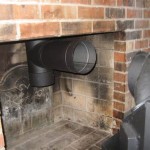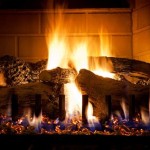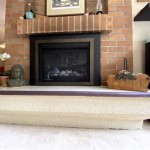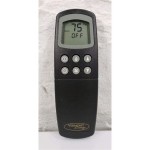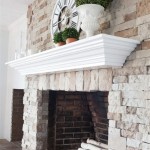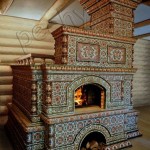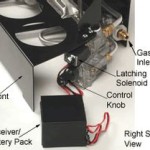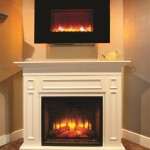Fireplace Glass Door Screens: A Comprehensive Guide
Fireplace glass door screens are a popular addition to many homes with fireplaces, serving both aesthetic and functional purposes. They offer a layer of safety, improve energy efficiency, and contribute to the overall visual appeal of a hearth. This article will explore the various aspects of fireplace glass door screens, including their benefits, materials, styles, maintenance, and considerations for choosing the right screen for your specific needs.
Safety and Protection
One of the primary reasons homeowners install fireplace glass door screens is to enhance safety. An open fireplace, while charming, can present several hazards. Sparks and embers can escape from the firebox and potentially ignite nearby carpets, furniture, or other flammable materials. This poses a significant fire risk, especially when the fireplace is unattended.
A well-fitted glass door screen acts as a barrier, preventing these errant embers from escaping. This reduces the risk of accidental fires and provides peace of mind, particularly for families with young children or pets who might be tempted to get too close to the flames. The screen also helps to contain the fire within the firebox, preventing logs from rolling out and causing further hazards.
Beyond preventing sparks, glass door screens can also protect against drafts and backdrafts. They help to isolate the firebox from the room, reducing the likelihood of cold air entering the home through the chimney when the fireplace is not in use. This is especially important during colder months when drafty conditions can significantly lower the overall comfort level of the home.
Furthermore, glass door screens can help prevent small animals or debris from entering the home through the chimney. This is particularly relevant in areas with wildlife or when the fireplace hasn't been used for an extended period. A closed glass door provides a physical barrier, ensuring unwelcome guests don't find their way inside.
An often overlooked safety benefit is the prevention of carbon monoxide exposure. While a properly functioning chimney should vent all combustion byproducts outside, a compromised flue or downdraft can lead to carbon monoxide entering the home. While glass doors do not function as a carbon monoxide detector, they can help reduce the chance of drafts that might pull the gas into the room, especially when the fire is dying down and the draw is weaker.
Energy Efficiency and Heat Control
Fireplace glass door screens play a vital role in improving the energy efficiency of a fireplace. Traditional open fireplaces are notoriously inefficient, often drawing more heat from the room than they provide. This is because the chimney acts as a large vent, pulling warm air up and out of the house, especially when the fireplace is not in use.
When the fireplace is in operation, the glass doors help to radiate the heat more effectively into the room. The glass absorbs heat from the fire and then radiates it outwards, providing a more consistent and even distribution of warmth. This can help to reduce the need for turning up the thermostat, potentially saving on energy bills.
More importantly, when the fireplace is not in use, closing the glass doors significantly reduces the amount of warm air that escapes up the chimney. This is because the glass creates a barrier that prevents the flow of air. This is particularly effective in homes with older chimneys that may have leaks or cracks, further exacerbating the problem of heat loss.
Some glass door screens are designed with insulated glass, which provides an even greater level of energy efficiency. Insulated glass consists of two panes of glass with a layer of air or gas in between, providing a thermal barrier that further reduces heat transfer. These types of screens are particularly beneficial in colder climates where minimizing heat loss is crucial.
In addition to conserving heat, glass door screens also provide a level of control over the fireplace's operation. They allow you to regulate the airflow to the fire, which can affect the burning rate and the amount of heat produced. By adjusting the doors, you can optimize the fire for your specific needs, whether you want a roaring fire for maximum warmth or a slower burn for ambiance.
Aesthetic Enhancements and Design Options
Beyond their functional benefits, fireplace glass door screens also offer significant aesthetic enhancements. They can transform the look of a fireplace, adding a touch of elegance and sophistication to the room. With a wide variety of styles, finishes, and designs available, it's possible to find a screen that perfectly complements the home's existing décor.
Glass doors come in a range of styles, from traditional to contemporary. Traditional styles often feature ornate designs, such as scrollwork or floral patterns, and are available in finishes like brass, bronze, or antique pewter. These styles are well-suited for homes with a classic or vintage aesthetic.
Contemporary styles, on the other hand, tend to be more minimalist in design, featuring clean lines and simple geometric shapes. They are often available in finishes like black, stainless steel, or brushed nickel, and are well-suited for homes with a modern or industrial aesthetic. Some contemporary designs even feature frameless glass doors, providing an unobstructed view of the fire.
The type of glass used in the doors can also affect the overall look of the fireplace. Clear glass provides a direct view of the flames, while tinted or textured glass can create a more subtle and diffused effect. Smoked glass, for example, can add a touch of drama and sophistication to the fireplace.
Furthermore, the handles and hardware on the doors can also contribute to the overall aesthetic. Handles are available in a variety of styles and finishes, from simple knobs to elaborate levers. Choosing hardware that complements the style of the doors and the rest of the room can help to create a cohesive and visually appealing look.
The selection of a fireplace glass door screen allows homeowners to personalize their fireplace and create a focal point in the room. The ability to choose from various styles, finishes, and glass types ensures that the screen seamlessly integrates with the existing décor, enhancing the overall visual appeal of the space.
Materials and Construction
The materials and construction of a fireplace glass door screen significantly impact its durability, performance, and lifespan. Screens are typically constructed from a combination of metal and glass, with the quality of these materials playing a crucial role in the screen's longevity.
The frame of the screen is typically made from steel, iron, or aluminum. Steel and iron are known for their strength and durability, making them ideal for heavy-duty use. Aluminum is lighter and more resistant to corrosion, making it a good choice for coastal areas or homes with high humidity. The gauge, or thickness, of the metal is also an important consideration, with thicker gauges generally providing greater strength and stability.
The glass used in fireplace door screens is typically tempered glass, which is heat-resistant and shatter-resistant. Tempered glass is significantly stronger than regular glass and is designed to break into small, relatively harmless pieces if it does shatter. This makes it a safer option for use in a fireplace, where it will be exposed to high temperatures.
As mentioned previously, some screens feature insulated glass, which consists of two panes of glass with an air or gas-filled space in between. Insulated glass provides enhanced energy efficiency by reducing heat transfer. It is also more resistant to condensation, making it a good choice for homes in humid climates.
The quality of the hinges, latches, and other hardware is also important. These components should be made from durable materials that can withstand repeated use. Stainless steel or brass hardware is generally a good choice, as it is resistant to corrosion.
The construction of the screen should also be considered. A well-constructed screen will have tight seams and joints, ensuring that it is both strong and durable. The doors should open and close smoothly and securely, and the latches should be easy to operate.
Installation and Maintenance
Proper installation and maintenance are essential for ensuring the optimal performance and longevity of a fireplace glass door screen. While some homeowners may choose to install the screen themselves, professional installation is often recommended to ensure a proper fit and avoid any potential safety issues.
Before installing a screen, it's crucial to accurately measure the fireplace opening. The screen should fit snugly within the opening, but not so tightly that it is difficult to install or operate. It's also important to ensure that the screen is properly aligned and level.
When installing the screen, follow the manufacturer's instructions carefully. Be sure to use the correct hardware and tools, and take care to avoid damaging the screen or the fireplace. If you are not comfortable with the installation process, it's best to hire a qualified professional.
Once the screen is installed, regular maintenance is essential for keeping it in good condition. This includes cleaning the glass regularly to remove soot and creosote buildup. A specialized glass cleaner designed for fireplace doors is recommended, as it will not damage the glass or the frame.
Also, periodically inspect the screen for any signs of damage, such as cracks in the glass or loose hinges. Repair any damage promptly to prevent it from worsening. Lubricate the hinges and latches regularly to ensure smooth operation.
For screens with painted or coated finishes, avoid using harsh chemicals or abrasive cleaners, as these can damage the finish. Simply wipe the frame down with a damp cloth to remove any dust or dirt.

Fireplace Glass Doors Vs Screens Full Service Chimney

Standard Size Masonry Fireplace Doors Fixed Frame

Fireplace Glass Doors Vs Screens Full Service Chimney

Plow Hearth 2 Door Fl Fireplace Fire Screen With Beveled Glass Panels Black Target

Fireplace Glass Doors Vs Screens

Classic Fireplace Screen With Doors Woodland Direct Screens Stainless Steel

Pleasant Hearth Arrington Fireplace Door Doors

Finley Wood Burning Fireplace Glass Door In Flat Black

Design Specialties Glass Fireplace Doors Accessories

Adams Mission Style Window Pane Fireplace Door Screen 39x31 Woodland Direct Doors Screens With Glass

